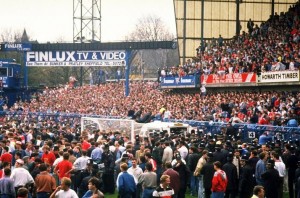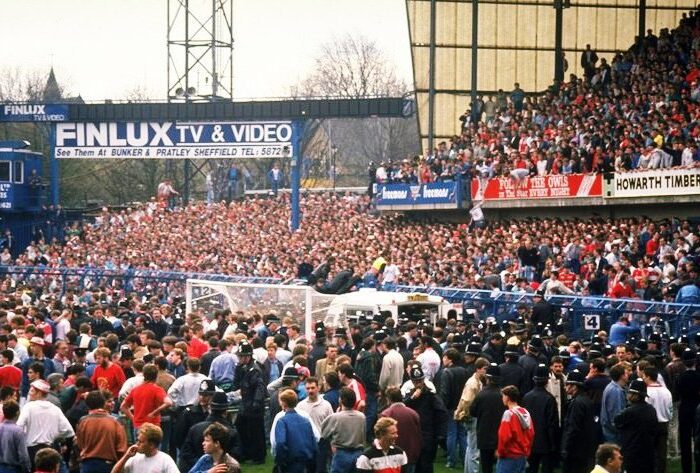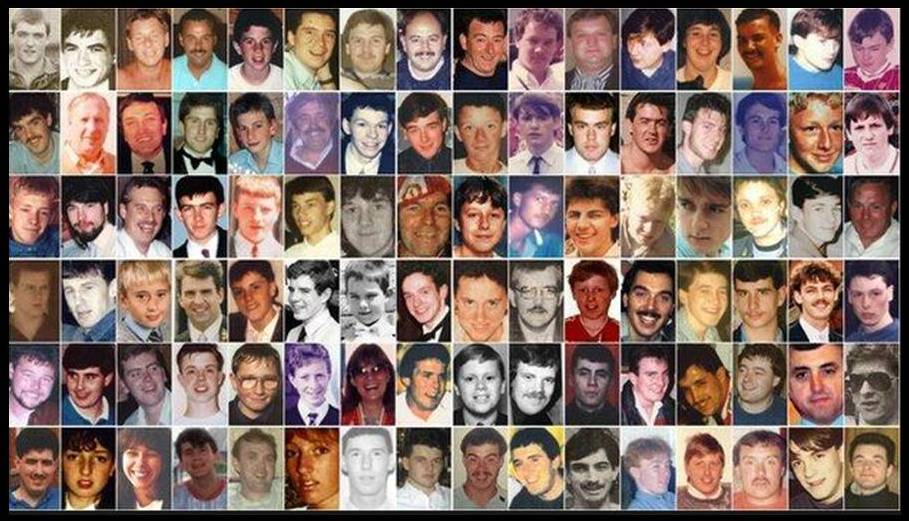
The jury at the Hillsborough Inquests has decided that the 96 Liverpool fans who died in the 1989 stadium disaster were unlawfully killed, after submitting their conclusions following more than two years of hearings.
The verdict was a majority decision, after seven of the nine jury members had reached agreement that the fans had been unlawfully killed, with rulings on the other 13 considerations on the jury questionnaire proving unanimous.
Jurors in Warrington had spent nine full days deliberating their conclusions before it was announced yesterday that they could return a majority verdict for the key determination over unlawful killing.
- Basic facts of the disaster: Yes, 96 people died as a result of crushing in central pens
- Police planning for the game: Yes, there were “major omissions” in police planning and preparation
- Policing of the match and the situation at the turnstiles: Yes, there were “major omissions” in police planning and preparation
- Policing of the match and the crush on the terrace: Yes, there were errors by commanding officers caused/contributed to the crush
- The opening of the Leppings Lane gates: Yes, there were errors by commanding officers in control box which caused/contributed to crush
- Were those who died unlawfully killed?: Yes
- Behaviour of the supporters: No, there was no behaviour on part of supporters which contributed to situation
- Defects in Hillsborough stadium: Yes, elements of design/layout of stadium contributed to the disaster
- Licensing and oversight of the stadium: Yes, there were errors/omissions in safety certificate of stadium
- Conduct of Sheffield Wednesday FC before the game: Yes, there were errors/omissions in management/preparation of the stadium
- Conduct of Sheffield Wednesday FC on the day of the match: No, there was no error/omission by Sheff Wed and staff did not contribute to Leppings Lane situation
- Conduct of Eastwood and Partners (SWFC engineers): Yes, structural engineers should have done more to detect/advise on unsafe stadium features
- Emergency response and the role of South Yorkshire Police: Yes, there were errors/omissions from police after crush had started to develop
- Emergency response and the role of South Yorkshire Metropolitan Ambulance Service: Yes, there were errors/omissions from ambulance service after crush had started to develop
To answer yes, jurors had to be “sure” that match commander Chief Superintendent David Duckenfield was “responsible for the manslaughter by gross negligence” of those who were fatally injured at the FA Cup semi-final between Liverpool and Nottingham Forest in Sheffield on April 15th 1989.
The decision was greeted by cheers and clapping in the coroner’s court, as further rulings also made it clear that the jury said there was no behaviour on the part of supporters which contributed to the tragedy, while there were “major omissions” in the planning and preparation by South Yorkshire Police.
The chairs of the Hillsborough Families Support Group, Margaret Aspinall and Trevor Hicks, hugged each other as they cried tears of relief and joy that their long campaign had finally been vindicated.
Aspinall told reporters: “Let’s be honest about this – people were against us. We had the media against us, as well as the establishment. Everything was against us.
“The only people that weren’t against us was our own city. That’s why I am so grateful to my city and so proud of my city. They always believed in us. I think we have changed a part of history now – I think that’s the legacy the 96 have left.”
Following the announcements, the Crown Prosecution Service confirmed it will now begin considering criminal charges over Hillsborough.
Sue Hemming, Head of the Special Crime and Counter Terrorism Division at the CPS, said: “We would ask that everyone is mindful of the continuing investigations and the potential for future criminal proceedings when reporting or publicly commenting on the inquest’s conclusions.”
For the families, today marked justice after 27 years of battling for the truth to emerge and there were emotional scenes inside and outside the court, as well as Liverpool city centre where members of the public gathered to watch the verdicts come in on the large TV screen by St George’s Hall.
The clock at Liverpool Town Hall was set to 3.06 in tribute to the victims – the exact time the fateful match was stopped.
When all 14 determinations had been read out, Coroner Lord Justice Goldring called for a short adjournment after an extremely tense atmosphere had built in the court in the minutes leading up to the verdict.
A spontaneous rendition of ‘You’ll Never Walk Alone’ was sung outside the building, followed by the familiar cry of ‘Justice for the 96’.
Prime Minister David Cameron tweeted that it was a “landmark day” providing “long overdue justice”, adding: “I would like to pay tribute to the extraordinary courage of #Hillsborough campaigners in their long search for the truth.”
Walton MP Steve Rotheram said: “I have waited 27 years for this moment, but I know it comes too late for many. I was there on the day and saw the horror unfold before my very eyes.
“I’ve seen how friends have suffered. This is a momentous day but they should never have had to wait so long. The truth is out there for all to see. Justice has been served by the verdicts and now it is about accountability.”
Fellow Labour MP, Andy Burnham, added: “This has been the greatest miscarriage of justice of our times, but finally it is over.”
The inquests were the longest in British legal history, beginning in March 2014 following the High Court’s decision to quash the ‘accidental death’ verdict of the original hearings in 1991. The fresh inquiry oversaw 267 days of evidence regarding the tragedy, with testimonies concluding earlier this year.
The 96 Hillsborough victims


